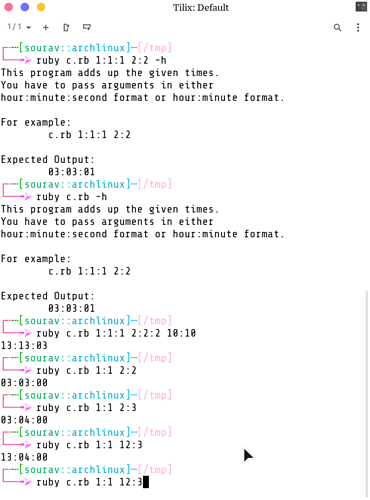<<-doc
Modify the sum of times method for any number of time values passed to this method.
Eg: (“11:23:07”,“22:53:45”,“0:23:23”,“23:45:56”) -> “2 day & 10:26:11”
(“0:45:34”,“0:15:58”) -> 01:01:32 ; (“11:23:07”,“22:53:45”) -> 1 day & 10:16:52
doc
require ‘time’
def to_seconds(timestamp)
timestamp.hour * 3600 + timestamp.min * 60 + timestamp.sec
end
def sum_time(*time)
initialize the variables
total_seconds = 0
time.each do |time_item|
timestamp = Time.parse(time_item)
total_seconds += to_seconds(timestamp)
end
sum_time_string = “”
days = (total_seconds / (24 * 3600)).to_i
sum_time_string = “#{days} day & " if days > 0
sum_time_string += Time.at(total_seconds).utc.strftime(”%H:%M:%S")
end
puts sum_time(“11:23:07”,“22:53:45”,“0:23:23”,“23:45:56”)
